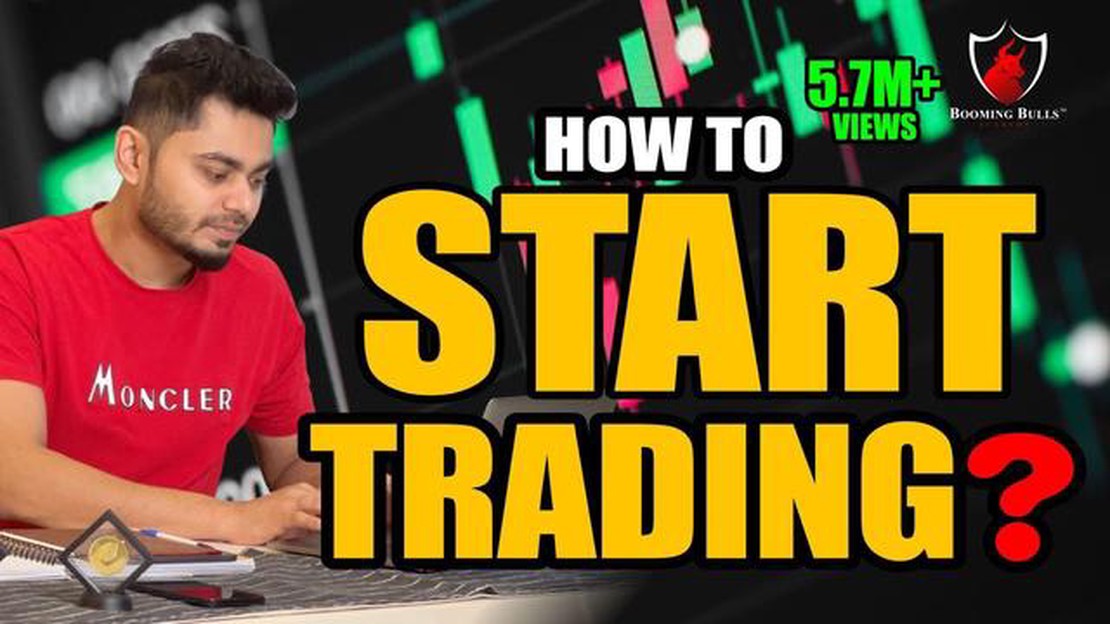Is Binary Trading Halal in Islam? Exploring the Shariah Rulings
Is Binary Trading Halal in Islam? In recent years, binary trading has gained significant popularity as a form of investment. Binary trading involves …
Read Article
Trading in Pakistan has become increasingly popular among individuals looking to generate an additional source of income. Whether you are a beginner or have some trading experience, understanding the basics of trading and the Pakistani market is essential to make informed investment decisions.
Step 1: Educate Yourself
Before you start trading, it is crucial to educate yourself about the different types of trading, such as stocks, commodities, and forex, and the strategies involved in each. You can enroll in online courses, read books, or join trading communities to gain knowledge and understand the dynamics of the market.
Step 2: Choose a Reliable Brokerage Firm
Selecting a reputable brokerage firm is crucial, as they will act as your intermediary in the trading process. Look for a firm that offers a user-friendly trading platform, competitive brokerage rates, and a variety of financial instruments to trade.
Step 3: Develop a Trading Plan
Read Also: Step-by-Step Guide: How to Play Futures and Options
Having a well-defined trading plan is essential for success in trading. Determine your goals, risk tolerance, and the amount of capital you are willing to invest. Consider setting realistic expectations and stick to your plan, avoiding rash decisions based on emotions.
Tip: Start with a small investment and gradually increase it as you gain experience and confidence in your trading abilities.
If you are a beginner looking to start trading in Pakistan, it is important to understand the basics of how trading works in the country. Trading refers to the buying and selling of financial instruments such as stocks, bonds, commodities, and currencies. It is a popular way for individuals and businesses to invest and make a profit.
There are several key components to understand when it comes to trading in Pakistan. First and foremost, you need to have a brokerage account. A brokerage account is a type of financial account that allows you to buy and sell securities through a brokerage firm. It is important to choose a reputable brokerage firm that is regulated by the Securities and Exchange Commission of Pakistan (SECP).
Once you have a brokerage account, you need to understand the different types of trading that are available in Pakistan. The most common types of trading include stock trading, forex trading, and commodity trading. Stock trading involves buying and selling shares of publicly traded companies, while forex trading involves buying and selling currencies. Commodity trading involves buying and selling commodities such as gold, oil, and agricultural products.
In order to start trading in Pakistan, you also need to have a basic understanding of how the stock market works. The stock market in Pakistan is known as the Pakistan Stock Exchange (PSX). It is important to research and understand the companies listed on the stock exchange before investing. This will help you make informed decisions and minimize the risk of loss.
Another important aspect of trading in Pakistan is understanding the concept of risk management. Trading involves risk, and it is important to have a plan in place to manage and mitigate that risk. This can include setting stop-loss orders, diversifying your portfolio, and being disciplined with your trading strategy.
Finally, it is important to continuously educate yourself and stay updated on the latest developments in the trading industry. This can involve reading books, attending seminars, and following reputable financial news sources. By continually learning and adapting, you can improve your trading skills and increase your chances of success.
Read Also: Understanding the fees to withdraw euros: a comprehensive guide
In conclusion, trading in Pakistan can be a rewarding and profitable venture if you have a solid understanding of the basics. By having a brokerage account, understanding the different types of trading, researching the stock market, practicing risk management, and continually educating yourself, you can increase your chances of success in the trading industry.
Trading can be an exciting and lucrative venture, but getting started can seem overwhelming. Here are some steps to help you embark on your trading journey:
Remember, trading requires discipline, patience, and continuous learning. It may take time to become a successful trader, but with proper education, practice, and the right mindset, you can achieve your trading goals.
Trading is the buying and selling of financial instruments, such as stocks, bonds, commodities, or cryptocurrencies, with the aim of making a profit. It involves actively buying and selling assets in the financial markets.
Yes, trading is legal in Pakistan. The Securities and Exchange Commission of Pakistan (SECP) regulates the trading activities in the country.
Is Binary Trading Halal in Islam? In recent years, binary trading has gained significant popularity as a form of investment. Binary trading involves …
Read ArticleUnderstanding the 2 Period Moving Average Forecast The 2 Period Moving Average (MA) forecast is a widely used statistical technique that helps in …
Read ArticleTop Banks Trading Forex Forex trading, also known as foreign exchange trading, is the global market for buying and selling different currencies. It is …
Read ArticleMeasuring CVA: Methods and Approaches CVA (Credit Valuation Adjustment) is a measure used in financial risk management to assess the potential loss …
Read ArticleWhat is Hedging in Forex Trading with Examples Forex trading, also known as foreign exchange trading, is the largest and most liquid financial market …
Read ArticleBeginner’s guide on how to trade in GT Are you interested in becoming a trader in the world of GT? Whether you are a veteran player or just starting …
Read Article